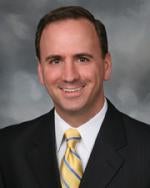In the wake of the U.S. Department of Justice’s (DOJ) recent memorandum regarding increased focus on individual culpability for corporate wrongdoing (on which we previously posted here) comes a district court decision with significant implications for individuals who attempt to assert an advice-of-counsel defense based on consultation with company counsel.
In a September 22, 2015 decision in U.S. v. Wells Fargo Bank, N.A, the U.S. District Court for the Southern District of New York ruled that an employee could not assert the advice-of-counsel defense because his employer, Wells Fargo, refused to waive the attorney-client privilege over the relevant communications between the employee and Wells Fargo counsel.
In Wells Fargo, the United States brought civil claims against Wells Fargo and individual defendant Kurt Lofrano for violation of the False Claims Act (FCA), along with other claims. Lofrano asserted that he had sought advice from Wells Fargo attorneys concerning the legal requirements he is now alleged to have violated, and acted in conformity with such advice. All parties agreed that the advice-of-counsel defense would provide a complete defense to the government’s claims against Lofrano.
But Wells Fargo objected to disclosure of the privileged communications at issue, and sought a protective order prohibiting disclosure. The Southern District engaged in a lengthy analysis of the competing principles that, on the one hand, a person accused of wrongdoing should be able to present “every available defense” and, on the other hand, the broader public interests underlying the sanctity of the attorney-client privilege.
Relying on the Supreme Court precedent (Swidler v. Berlin, 524 U.S. 399 (1998)) concerning the survival of the attorney-client privilege on death (a situation the Southern District conceded was not directly on point), the court rejected the argument that a balancing test should be used under which Lofrano’s need for the privileged evidence would be weighed against Wells Fargo’s need to keep it confidential: “That is, the use of a balancing test to determine whether a company, through no fault of its own, must forfeit its privilege based on an employee’s later assertion of an advice-of-counsel defense would render the privilege no less uncertain that the use of such a test to determine whether the privilege applies in the first instance.” The court held that the attorney-client privilege is not a qualified privilege and that, because Wells Fargo would not waive its privilege, the advice-of-counsel defense was not “available” to Lofrano.
The court observed that this result “is arguably harsh in this particular case, as it may well deprive Lofrano of his best defense to liability for tens of millions of dollars. It is, however, the price that must be paid for society’s commitment to the values underlying the attorney-client privilege.” The court went on to chronicle the ways in which the result might not be as harsh as it seems including, for example, the “significant number of cases” where the employer will also seek to assert the advice-of-counsel defense alongside the employee, and thus agree to waive. But this was not the case before the court.
The issue in Wells Fargo is likely to surface more frequently in the future given DOJ’s increased focus on individuals. Notably, the court expressly did not decide the applicability of its holding to criminal defendants. Moreover, Wells Fargo does not preclude a defendant from relying on non-privileged evidence that he or she consulted with counsel to negate proof of the requisite state of mind—such as recklessness—regardless of whether a true advice-of counsel defense is available.




 />i
/>i
